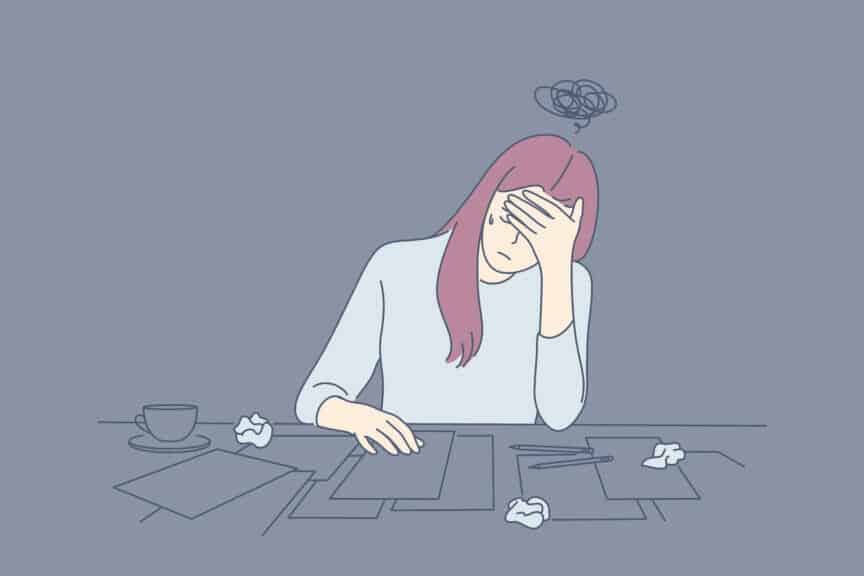Ever felt stuck in a rut? Or like every day is just as dull as the next? These feelings have become increasingly common after the pandemic, with more people than ever feeling drained and unmotivated in their life.
This state of mind has been termed ‘lifestyle fatigue’ by psychotherapist Sean Grover in Psychology Today. Lifestyle fatigue is detrimental to mental and physical well-being, as it decreases satisfaction, happiness, sociability, motivation, and energy. Relate to lacking any of those qualities? Maybe you, like many, are suffering from lifestyle fatigue. But what causes it and what can be done to reverse it?
First of all, what is lifestyle fatigue? It’s best described as feeling constantly exhausted, disinterested, and stuck in a repetitive routine. You might feel like every day is the same, leaving the house is awful, scrolling on social media is better than talking to people, and you’ve lost your drive for hobbies or work. Unlike depression, which is a serious mental health disorder, lifestyle fatigue is not a disorder. It’s a result of less-than-ideal lifestyle habits, which is why so many people experienced It during and after the pandemic.
Pandemic living left most of us socially isolated, less physically active, and without much stimulation besides screens. These habits are a recipe for worsening mental well-being, especially on top of the anxiety which accompanied being in a global pandemic. Post-pandemic, going back into normal routines of going to work or school didn’t give anyone much of a chance to address lifestyle fatigue, which is why so many are still dealing with it.

It’s easy to get stuck in a rut of living a certain way. Unfortunately, a lot of modern habits are detrimental to mental well-being. Staying in front of screens for too long, doom scrolling, working long hours, and being sedentary are all part of modern living for most people. But with psychologists recognizing that this lifestyle negatively impacts mental health, they recommend changing your lifestyle to shake lifestyle fatigue.
Check yourself for warning signs of lifestyle fatigue
Want to know if lifestyle fatigue is draining you? Sean Grover, in his article on lifestyle fatigue, wrote a set of questions to ask yourself. If you answer yes to five or more, it’s highly likely you have lifestyle fatigue.
- Does every day feel the same?
- Is your work dull and unrewarding?
- Do you dread leaving your house?
- Are you avoiding friends and social interaction?
- Do you spend more time with screens than people?
- Have you lost your creative drive?
- Has your sex drive gone missing?
- Do you end to ruminate or obsess about your failures?
- Are you overeating or undereating?
- Do activities that used to give you pleasure now feel like a waste of time?
If you now see that the reason you’ve been feeling ‘off’ recently is from lifestyle fatigue, help is at hand. Luckily, the cure for lifestyle fatigue isn’t hard or expensive.
Lift yourself out of lifestyle fatigue
Lifestyle fatigue is based on predictability and repetition, so to break free, you need change. Any change in your daily routine, such as getting up earlier, going for a walk, contacting an old friend, or trying a new hobby. Any activity which shakes up the rut you’ve been stuck in will begin to fight off lifestyle fatigue. Change one habit at a time, gradually adding more until you start to feel better.
Another solution to lifestyle fatigue is to look at your ‘mental hygiene’. Mental hygiene refers to maintaining good mental health by practicing habits that benefit mental well-being. Habits that are poor mental hygiene include spending too long on social media, not getting outside, not socializing enough, undereating or overeating, and not getting enough sleep. To improve mental well-being and banish lifestyle fatigue, focus on the four key pillars of good mental health: exercising enough, getting adequate nutrition, sleeping enough, and socializing every day.
Even if you feel hopelessly stuck in a rut and constantly tired, you can help yourself get back into enjoying life. Making small changes to the way you’re living and your habits can lead to an overall mental health boost and establish better mental hygiene, which everyone can benefit from.














